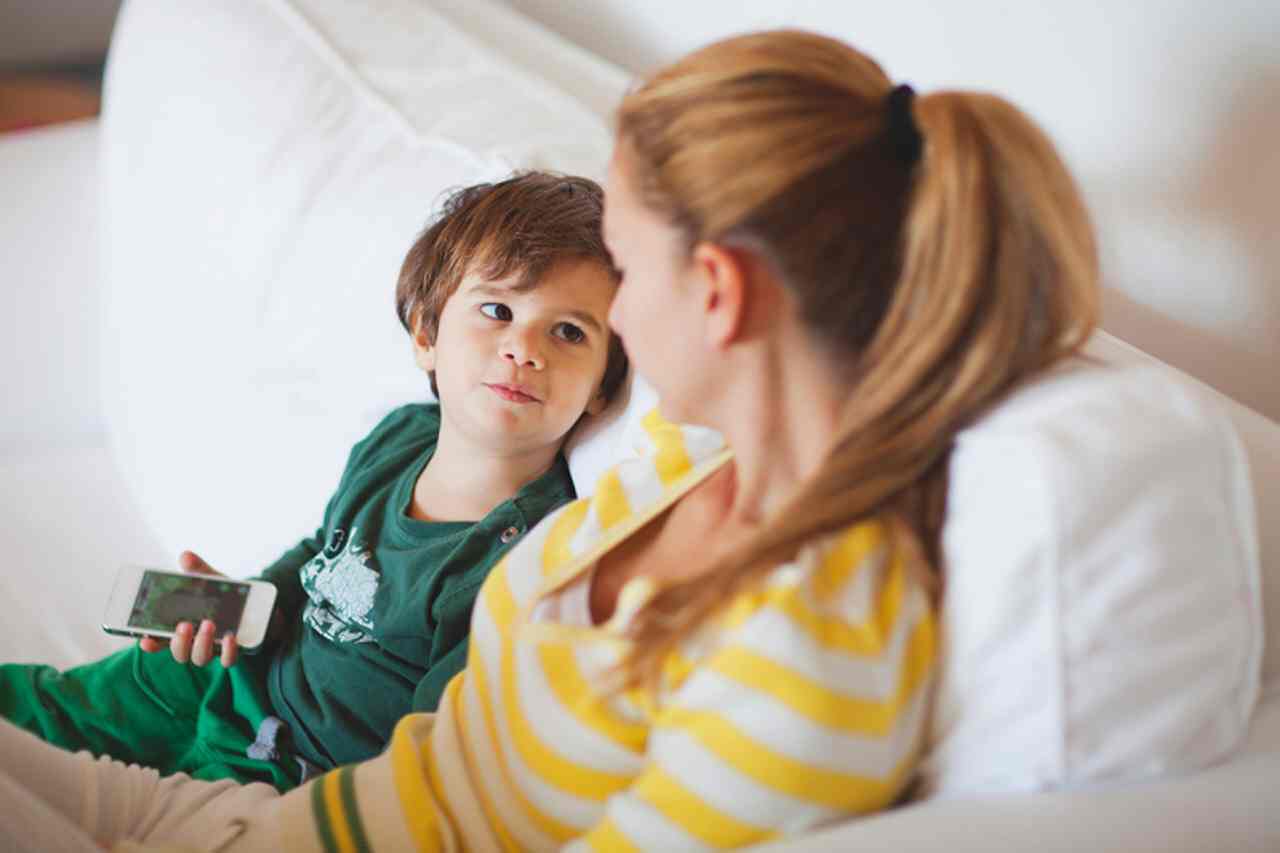
Awkward maybe, however beginning conversations about intercourse along with your youngsters early could make the method that a lot simpler.
At what age ought to we sit our youngsters down for that all-important intercourse speak?
If we expect again to our childhoods the place publicity to porn meant little greater than stumbling throughout a well-thumbed journal below a mother or father or older sibling’s mattress (stunning sufficient), you would possibly suppose you will have a little bit time up your sleeve.
But, in keeping with a analysis paper by the Australian Institute of Household Research (AIFS), almost half of our youngsters aged 9 to 16 are actually experiencing common publicity to sexual pictures.
Regarding sufficient, however research additionally counsel that the sort of pornography discovered on-line usually portrays sexually violent content material and excessive types of sexuality not usually seen within the sort of conventional porn we ourselves may need been uncovered to in our childhood.
Specialists consider such illustrations of intercourse may doubtlessly strengthen attitudes supportive of sexual violence in opposition to girls.
Why mother and father have to take the lead on intercourse speak
When you’re holding out in your little one’s faculty to step in with intercourse schooling courses – don’t, warns Affiliate Professor Alina Morawska from College of Queensland’s Parenting and Household Help Centre.
“Some colleges present sexual schooling but it surely tends to occur later within the piece, and it’s not led in a constant style,” Assoc Prof Morawska explains.
“Kids are curious by nature and in the event that they really feel that the household house is a ‘no go zone’ for intercourse speak, they may search that info out elsewhere, whether or not it’s by logging on or talking to different kids – not precisely what we may name dependable sources of data.”
Collett Good, psychologist and writer of They’ll be Okay, agrees mother and father should take the reins.
“Analysis tells us that kids (even teenagers) truly wish to hear about these subjects from their mother and father,” Collett says.
“Kids be taught what’s taboo, based mostly on what we’re silent on.”
Intercourse schooling wants to start out younger
Sexual schooling within the residence ought to ideally start earlier than your little one begins kindergarten, in keeping with the specialists.
A part of the rationale to beginning earlier just isn’t solely is it simpler to speak about it with youthful youngsters, however by the point they’re older and asking extra detailed questions, you’ll be extra practiced and cozy, says Assoc Prof Morawska.
“At first you’re not speaking about intercourse, however discussing physique components, giving the right names to organs and answering issues at their degree.”
This isn’t about hammering out all key messages without delay, provides Collett.
“These conversations can occur in little snippets whereas bathing or dressing your little one, earlier than a swimming lesson, after one thing they’ve seen in media or social media (for teenagers) or when your little one asks a query about your physique or others,” she says.
“There are a lot of alternatives that may current themselves.
“The trick is for folks to recognise these alternatives and use them as teachable moments.”
Methods to have “The Intercourse Speak”
There may be an thought that oldsters should sit their kids down for that one speak.
However intercourse schooling must be a rolling dialogue over time, a collection of countless intercourse talks drumming residence the message that you’re all the time keen and capable of arm them with the knowledge they want, says Assoc Prof Morawska.
“Use developmentally applicable language and take care to make use of the right terminology for organs so kids perceive the idea that they’re simply one other physique half,” she says.
“When you’re uncertain of how you can get began, seek the advice of useful resource materials on websites resembling Elevating Kids and True Relationships.”
After all, each little one is totally different, so when speaking along with your little one, Collett says it’s vital to contemplate components together with their age, temperament and stage of improvement, and the way adequately they will focus on their emotions and feelings.
“At each stage, breathe and be prepared,” she says.
“Ask loads of inquiries to get an understanding of what your little one already is aware of, be sort – don’t make your little one really feel soiled or ashamed in the event that they use terminology that they could have heard elsewhere, and above all, snort a little bit.
“This can assist break the ice and produce a little bit of humour and realness to the state of affairs.”
Written by Dilvin Yasa.

